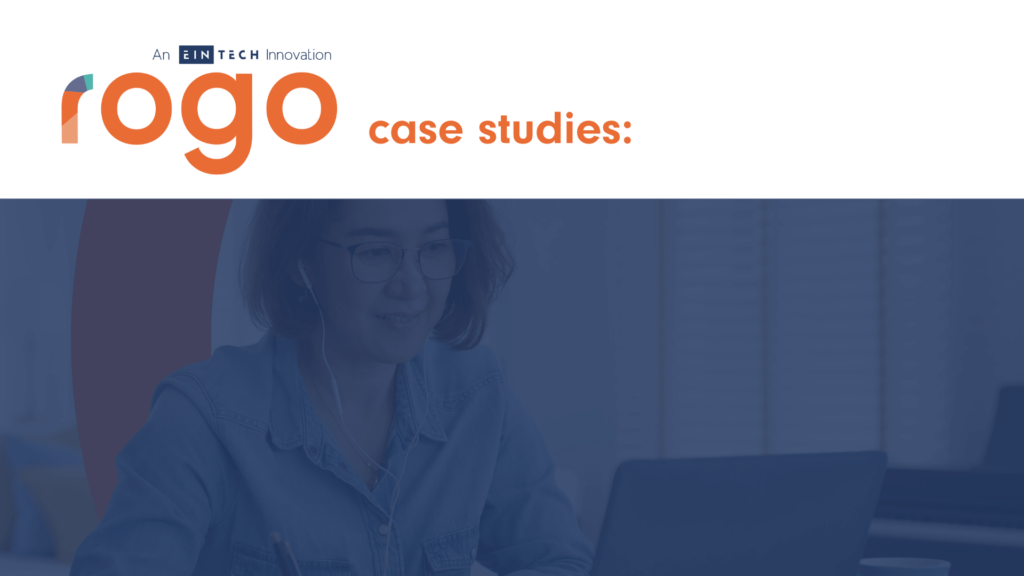In a recent roundtable discussion hosted by PQ Magazine with Rogo, industry leaders explored how artificial intelligence is transforming the accounting profession, and the way that we test those people looking to further their professional career. The panel featured Sean Robertson (AI and Data Leader, ICAS), Kyle Baker-Kemp (Professional Development and Advocacy Manager, IFA), James Carter (CEO and Founder of Eintech, creators of the Rogo platform), and Stuart Pedley-Smith (Education Adviser, AI Advocate, and former Head of Learning at Kaplan).
During the round table session, the panel along with chair Graham Hambly, raised the following:
The Current State of AI Adoption
AI has already become embedded in daily accounting practice. Panel members reported using AI tools throughout their workday—from processing receipts and generating expense reports to taking meeting notes and structuring reports. However, concerns remain about accuracy, with AI sometimes “making things up” or treating unreliable sources like Reddit equally to established outlets like the BBC.
The Biggest Opportunities
For practitioners: AI promises to eliminate mundane tasks, freeing accountants to focus on client relationships, advisory work, and critical thinking. It should transform accountants from being buried in spreadsheets to building stronger client connections.
For students: AI can serve as a personalised tutor, helping learners break down complex concepts, create study schedules, and receive instant feedback on their understanding.
For the profession: AI will elevate rather than eliminate accountants, highlighting their core value in ethics, judgment, business advisory and other skills that cannot be automated.
(For more on the topic of professional skills, you can also watch back the PQ Webinar on improving employability).
The Major Concerns
Cognitive Offload
The panel emphasized the risk of “cognitive offload”—people becoming overly reliant on AI without understanding the fundamentals. They compared it to sat-nav dependency and highlighted recent MIT research found that 83% of people who used AI to write something couldn’t remember what they’d written a minute later.
(Read more on that here: https://www.linkedin.com/pulse/mit-study-83-chatgpt-users-cant-remember-own-writing-alex-goryachev-4supc/)
Foundational Skills Matter
The panel agreed that students need strong foundational knowledge before using AI as a workplace tool. Critical thinking requires domain-specific expertise. Ultimately you can’t analyse accounting critically without accounting knowledge.
Ethics and Trust
With AI capable of generating realistic but potentially false content, the profession faces challenges around validation and trust. The panel suggested accountants will play a crucial role in auditing AI systems to ensure outputs are accurate and compliant.
Practical Tips for Using AI Effectively
For students:
- Use AI for planning study schedules and identifying examinable areas
- Ask AI to summarize content and explain concepts in different ways
- Create flashcards and practice questions
- Compare your answers to model answers and ask for improvement suggestions
- Master prompting skills—be specific about your role, the context, and what you need
- Use multiple AI tools and compare results for validation
For practitioners:
- Map your existing processes first, then identify where AI can help
- Always maintain “human in the loop”—review and validate AI outputs
- Read your organization’s AI policy thoroughly
- Use AI for document summarization, research, and drafting—but always check the output
- Consider AI as a tool to accelerate work, not replace judgment
Looking Ahead
Within 2-3 years, the panel expects:
- Assessment methods to evolve, potentially allowing AI use in exams with evaluation focused on judgment and application
- Clearer boundaries between when students should learn foundational skills versus when to use AI tools
- Better data governance becoming critical as AI quality depends on input quality
- Small firms potentially benefiting more quickly due to streamlined data requirements
- Professional bodies establishing clearer guidelines on AI usage
Red Lines and Governance
The experts agreed that:
- Any final decision must be made by humans, not AI
- Organizations need clear AI policies alongside data protection guidelines
- The profession should lead in validating AI-generated outputs
- Existing regulatory frameworks (GDPR, reporting standards) already provide many necessary guardrails
The Bottom Line
Following a dive into practical tips and suggestions for use, looking to the future and a discussion on governance around AI, the session concluded with a straightforward recommendation: “Engage with it, embrace it, use it, manipulate it. Have it as part of your personal package going forward in your career.” AI isn’t going anywhere, but success requires balancing enthusiasm with professional skepticism, foundational knowledge with new tools, and automation with human judgment.
The accounting profession’s future lies not in avoiding AI, but in using it wisely while maintaining the trust, ethics, and expertise that define professional accountants.
What do you think about the panels thoughts on AI? Share your comments with Graham at https://www.pqmagazine.com


